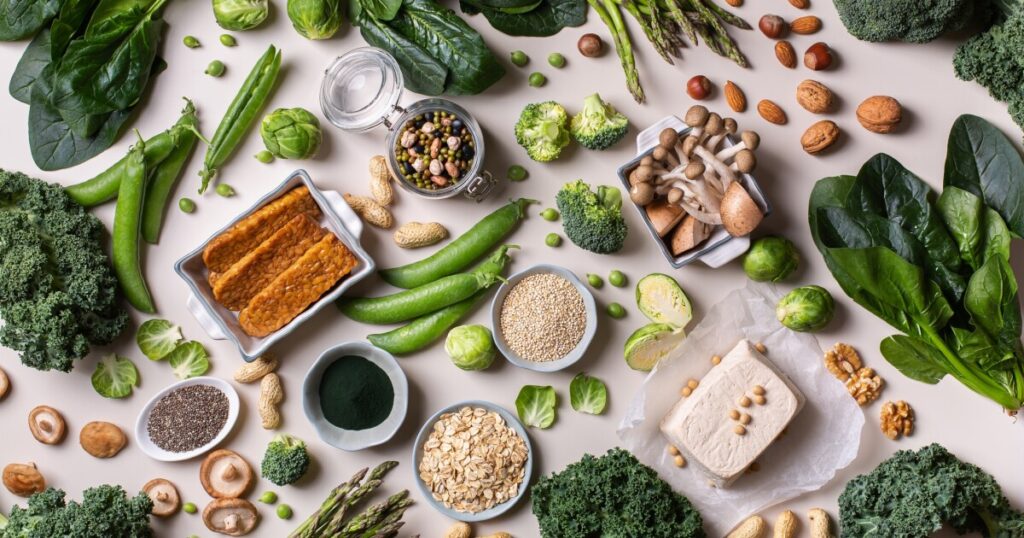In recent years, the popular belief that consuming animal protein is essential for building muscle has been challenged by new research findings. While traditional studies supported the idea that animal proteins like whey were superior for muscle synthesis, emerging evidence suggests that plant-based proteins can be just as effective if consumed in the right quantities.
Historically, exercise researchers, including Nicholas Burd from the University of Illinois Urbana-Champaign, have maintained that animal protein is more beneficial for muscle growth than plant protein. “It was certainly ingrained in my mind that animal [protein] is better than plant,” Burd admitted. This perspective was largely based on studies showing better muscle protein synthesis with animal protein consumption compared to plant sources.
Animal products are rich in essential amino acids, crucial for muscle building, and closely resemble our skeletal muscle composition. While plant-based foods also contain essential amino acids, they are often present in lower concentrations. However, recent studies have indicated that plant proteins can be just as effective as animal proteins when consumed in adequate amounts.
Reevaluating Protein Sources in Muscle Building
James McKendry, a researcher at the University of British Columbia, noted that while animal protein is of higher quality on a gram-for-gram basis, plant-based proteins can be equally effective when consumed in sufficient quantities as part of a balanced meal. He emphasized, “But if you’re consuming enough of [plant-based protein] and in the context of a whole meal, those differences really don’t come out in the wash.”
Exploring Vegan Diets in Strength Training
Recent trials, including one conducted by Burd and published in Medicine & Science in Sports & Exercise, provide new insights into vegan diets for muscle building. In this study, 40 young adults were randomized to follow either a vegan or omnivore diet over nine days, with all meals provided by researchers. After three weightlifting sessions, muscle biopsies showed that both diets offered similar muscle-building potential.
Interestingly, the timing of protein consumption did not affect results, whether participants spaced their protein intake or concentrated it at the end of the day. Benjamin Wall from the University of Exeter highlighted the importance of such studies in shaping our understanding of protein sources and muscle development.
Further Research and Considerations
Wall’s own research supports these findings, showing minimal differences between plant and animal proteins in muscle building. However, he acknowledges that much of the previous belief in the superiority of animal protein stemmed from short-term studies focusing on single meals.
The University of Illinois study used a protein intake of 1.2 grams per kilogram of body weight, reflecting average American consumption and exceeding U.S. recommendations. While promising, these studies have limitations, such as short duration and a focus on young individuals.
Wall suggests that longer-term research could provide more definitive answers. He also points out the challenges of maintaining a high-protein diet solely from plant sources, despite the accuracy of studies where meals are provided to participants.
The Plant-Based Protein Advantage
Plant-based diets, when carefully planned, can deliver sufficient protein. Foods like lentils, tofu, quinoa, and broccoli contribute to protein intake but require mindful combination to ensure all essential amino acids are consumed. McKendry explained that combining foods, such as rice and beans, can provide complementary amino acid profiles.
Burd confirmed, “Vegan diets are just as good provided they’re balanced and you’re eating enough protein.” Determining the right amount of protein remains a complex issue. Wall recommends 1.6 grams per kilogram of body weight for those aiming to build muscle, though individual needs vary based on factors like activity level and age.
McKendry emphasized that resistance training is the cornerstone of muscle building, stating, “It doesn’t matter how much you consume — if you’re not progressively resistance training, you’re not going to build much muscle at all.” Protein is merely the “icing on the cake” in the broader context of muscle development and overall health benefits.
Copyright 2025 NPR
—
Read More Michigan News










